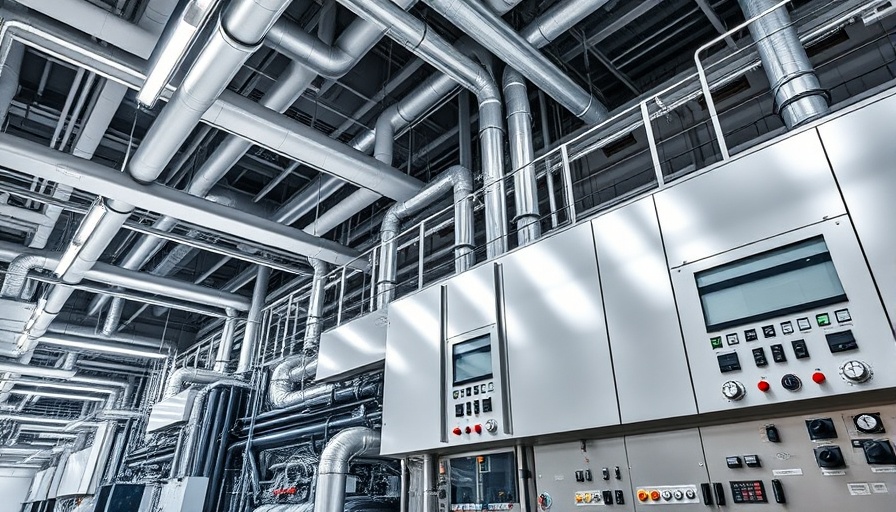
Data-Driven HVAC Upgrades: Navigating the Future of Facility Management
The modern landscape of HVAC upgrades is evolving dramatically, and at the forefront of this change is the profound impact of data analytics. No longer is the upgrading of heating and cooling systems solely about mechanical improvements; rather, it has become a complex dance of technology, data, and strategic planning. In a world still grappling with the implications of the COVID-19 pandemic, ensuring adequate ventilation and air quality has become mission-critical for facility executives. This article delves into the necessity and the unprecedented opportunities that data-driven HVAC upgrades present for today’s facility managers.
Understanding the Role of Historical Data in HVAC Upgrades
Historical data plays a vital role in successful HVAC upgrades, acting as a foundation upon which informed decisions are constructed. According to Nick Lynch, vice president of project development with Henderson Building Solutions, the operational history of an HVAC system provides crucial insights that can shape the upgrade process. Utilizing documented operating logs and preventive maintenance history ensures that project teams have access to critical information needed for effective decision-making. This historical lens allows facility managers to not only identify current deficiencies but also anticipate future challenges, thereby fostering an environment of proactive maintenance and strategic planning.
The Importance of Real-time Monitoring
The landscape of facility management has changed significantly with the rise of real-time monitoring technologies. Facility managers are no longer relegated to relying solely on periodic assessments; instead, they can now employ advanced sensors and IoT devices to gather continuous data streams. As Brendon Russ of JLL emphasizes, ongoing maintenance data including energy assessments and unit performance metrics allow for immediate adjustments that can save costs and increase efficiency. The shift to data-driven insights not only optimizes system performance but also enhances the comfort and safety of building occupants.
Leveraging Data for Sustainability Goals
With growing emphasis on sustainability, data-driven HVAC upgrades can play a pivotal role in achieving environmental objectives. As organizations commit to reducing their carbon footprints, utilizing data analytics to optimize heating and cooling becomes essential. Upgrades informed by precise data can lead to more energy-efficient systems, resulting in cost savings and enhanced environmental responsibility. Facility executives who leverage these insights not only contribute to their organization's sustainability goals but also align with broader trends favoring non-toxic materials and designs that promote wellness.
Predicting Future Trends in HVAC Technology
As technological advancements continue to shape the HVAC landscape, it is crucial for facility managers to stay ahead of trends. The integration of AI and machine learning offers the potential for predictive analytics, which can foresee system failures before they occur, ultimately preventing costly downtimes. This trend not only translates to operational efficiency but also revolutionizes facility management, allowing executives to focus not just on maintenance but on innovation and strategic growth.
Counterarguments: The Challenges of Data Dependency
While the advantages of a data-driven approach are evident, it is equally essential to address the potential challenges. Over-reliance on technology can lead to issues, including data overload, where too much information becomes unwieldy. Moreover, not all data acquired may be beneficial, and discerning valuable insights from noise is critical. Facility executives must balance their approach, ensuring that while they leverage data, they also commit to sound judgment and human expertise in decision-making.
Conclusion: Embracing Data for Comprehensive Facility Management
As we venture further into an era where technology and data dictate the pace of innovation, HVAC upgrades stand at a pivotal crossroads. By embracing a data-driven approach, facility managers are not just enhancing existing systems; they are paving the way for improved health, comfort, sustainability, and efficiency in their environments. With the right strategies in place to harness the power of data, organizations can navigate today's complex facility management challenges and emerge ahead in the quest for excellence.
 Add Row
Add Row  Add
Add 




 Add Row
Add Row  Add
Add 

Write A Comment